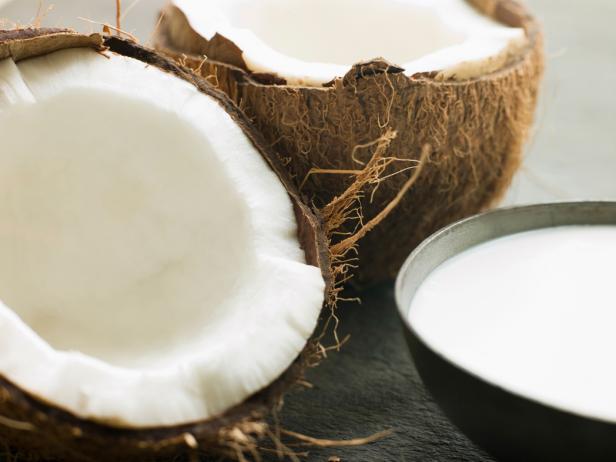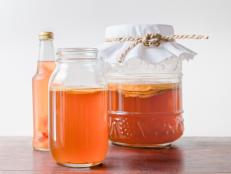Reading List: Coconuts, Kombucha and Mrs. Obama’s Healthy Eating Chat

Valueline, (c) Valueline
In this week’s nutrition news: Restaurant dips cause of food poisoning, kombucha pulled from shelves and how to cool down hot flashes.
The coconut craze is in full swing with a buzz saying that it helps strengthen immunity, burn fat and prevent heart disease. But is it really worth the hype? We’ve discussed the facts before and it seems experts agree. Coconut water has been promoted as a way to re-hydrate after exercise, but it doesn’t have as many carbs as sports drinks, which may not be enough to refuel muscles after longer workouts. Also, many of the Web sites that promote coconut products and studies that are written about coconut oils originate from coconut-producing countries like India, Indonesia and Philippines. That’s not exactly solid evidence.
Another ingredient getting lots of hype is kombucha. These fermented drinks are now being removed from market shelves because they’ve been found to contain too much alcohol. Some bottles have been found to contain more than 0.5 percent alcohol---the maximum limit for a drink not to be considered alcoholic. In the unpasteurized versions of the drink (which many folks prefer) alcohol can develop over time because the live yeast converts sugar to alcohol. In the meantime, stores like Whole Foods will not be selling it until the government decides how to label it.
Childhood obesity is a hot topic for Michelle Obama. This week, the First Lady did her first-ever live chat with AOL Health readers to discuss some small steps for better health. Some things the first family does: Eating more veggies, eating meals as a family once a day, drinking more water, no TV during the week and no sugary drinks. Of course birthday cake, French fries and fast food are on the menu, but only as special treats. Mrs. Obama stressed that it’s all about moderation and balance. Watch Michelle Obama’s talk with AOL Health here.
I’m crazy for salsa and guacamole, but after this recent study, I’m gonna think twice before ordering it at a restaurant. The statistics showed that these dips were the cause of 25 outbreaks of food poisoning between 1998 and 2008 — a more than 50 percent jump compared to previous decade. The outbreaks were usually linked to the raw hot peppers, tomatoes and cilantro typically used in salsa and guacamole. Why such a high rate of food poisoning in these dips? Bacteria from unwashed hands, countertops or elsewhere make its way into the food and since they’re not cooked, the bacteria aren’t destroyed. This makes it important to keep these items refrigerated, which some restaurants don't do properly.
Hot flashes are anything but fun (or so my clients tell me). But according to a new study published in the Archives of Internal Medicine, overweight women suffering from hot flashes were able to alleviate symptoms after losing weight. The study followed 338 obese and overweight women. Two-thirds of them were put on a weight loss program and the remainder went to a few educational sessions on weight loss and health. Women in the weight loss program group lost an average of 16 pounds and more than 2-inches off their waistline in over six months as compared to about 4-pounds and 1-inch in the second group. Women with the higher weight loss also reported greater improvements in their hot flash symptoms.
Toby Amidor, MS, RD, CDN, is a registered dietitian and consultant who specializes in food safety and culinary nutrition. See Toby's full bio »






























